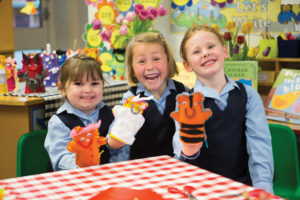by Carrie Crown
Mackrell Turner Garrett Solicitors
Under the current law, if you and your spouse have separated within the last two (or sometimes even five) years you must provide evidence that your spouse has either committed adultery or otherwise behaved in a way that you cannot tolerate to live with before the Court will grant permission for you to get a divorce.
These ‘fault-based’ divorces were thrust into the public eye last year when the case of Owens vs Owens, came before the Supreme Court to consider whether Mrs Owens could divorce her husband on the basis of his unreasonable behaviour towards her. Mr Owens defended the divorce.
Ultimately, the Supreme Court reluctantly agreed with Mr Owens that his behaviour during the marriage had not been unreasonable and therefore Mrs Owens is forced, for the time being, to remain married to him.
As a result, neither Mr or Mrs Owens can ask the Court to make a decision regarding the division of the assets of the marriage, as a financial application in divorce can usually only be dealt with once the Court has declared that the divorce can proceed and decree nisi, often called the ‘first stage’ of the divorce has taken place.
Although Mr and Mrs Owens had no dependent children, the law as it currently stands can be particularly onerous for parents of young children who find themselves unable to divorce and therefore unable to sort out the matrimonial finances for several years after separation has taken place. This can result in significant delay in being able to provide a stable home for children and suitable arrangements for their ongoing care. All of this will inevitably impact upon the emotional wellbeing of the children.
People are often therefore forced to petition for divorce for one of the ‘fault-based’ reasons, submitting evidence to the Court as to why the behaviour of their spouse has led to the breakdown of the marriage. This often results in hurt feelings, anger and increased tensions between the parties.
Over the years, the Government have been reluctant to reform the UK’s divorce law, believing that making it easier for couples to divorce would somehow undermine the sanctity of marriage and increase the rates of divorce.
In 2017, a national survey carried out by the Nuffield Foundation found that 62% of petitioners and 78% of respondents in a divorce said that using fault had made the process more bitter, 21% of fault-respondents said fault had made it harder to sort out arrangements for children, and 31% of fault-respondents thought fault made sorting out finances harder.
In 2018, Resolution, an organisation which consists of 6,500 family lawyers (myself included), declared that there was a ‘divorce crisis’ in the UK and in November launched it’s ‘Good Divorce week’ seeking to highlight the impact upon children in particular of a system of divorce which attaches blame to one party.
Finally, following a 12 week public consultation, on 9th April 2019, Justice Secretary David Gauke announced that divorce law in the UK would be reformed and that, in future, the only ground for divorce would be that the marriage had ‘irretrievably broken down’ commenting that ‘hostility and conflict between parents leave their mark on children and can damage their life chances.’
The proposals will also dispense with the requirement to provide evidence of the ‘fact’ of adultery or unreasonable behaviour and substitute it for a ‘statement of irretrievable breakdown.’ The current two-stage process, Decree Nisi and Decree Absolute, will remain and a minimum timeframe of six months will be set from the date of the petition to decree absolute. The option will also be made available for parties to issue a joint-divorce petition.
Currently there is no set timetable for the legislative reforms to take place. Let’s face it, the Government have been somewhat busy of late! David Gauke has said, however, that
he intends the reforms to take place as soon as parliamentary time allows.
The changes do not, in my professional opinion, make the process of divorce any ‘easier’ and certainly no quicker than the current system. It will, however, make the process far less adversarial and emotionally damaging for all those involved.
Carrie Crown, Family Associate Solicitor at Mackrell Turner Garrett, Surrey, is a resolution-accredited specialist and is therefore committed to resolving family disputes in a non-confrontational and constructive manner wherever possible.
Email: Carrie.Crown@mtg.uk.net
Telephone: 01483 755609
www.mackrellsurrey.com

 by Naomi Bartholomew
by Naomi Bartholomew


 Perhaps the elemental nature of motherhood can’t quite be understood until we are ‘in’ our experience, or maybe we wouldn’t head on this collision course with life if we knew what was ahead? If this were the case, why do so many of us go on to do it time and again? Creating life can be addictive, because although oxytocin is understood by endocrinologists as an antidote to craving, the positive feedback mechanism that controls its release actually helps anaesthetise us a little, or diminish the sensations of discomfort, and feelings of turmoil that are intrinsically linked with pregnancy, childbirth and motherhood.
Perhaps the elemental nature of motherhood can’t quite be understood until we are ‘in’ our experience, or maybe we wouldn’t head on this collision course with life if we knew what was ahead? If this were the case, why do so many of us go on to do it time and again? Creating life can be addictive, because although oxytocin is understood by endocrinologists as an antidote to craving, the positive feedback mechanism that controls its release actually helps anaesthetise us a little, or diminish the sensations of discomfort, and feelings of turmoil that are intrinsically linked with pregnancy, childbirth and motherhood. ing a child and everything that comes with it, not just with gratitude, which helps lessen the sense of heaviness, but also with conviction, so as to empower us?
ing a child and everything that comes with it, not just with gratitude, which helps lessen the sense of heaviness, but also with conviction, so as to empower us?









